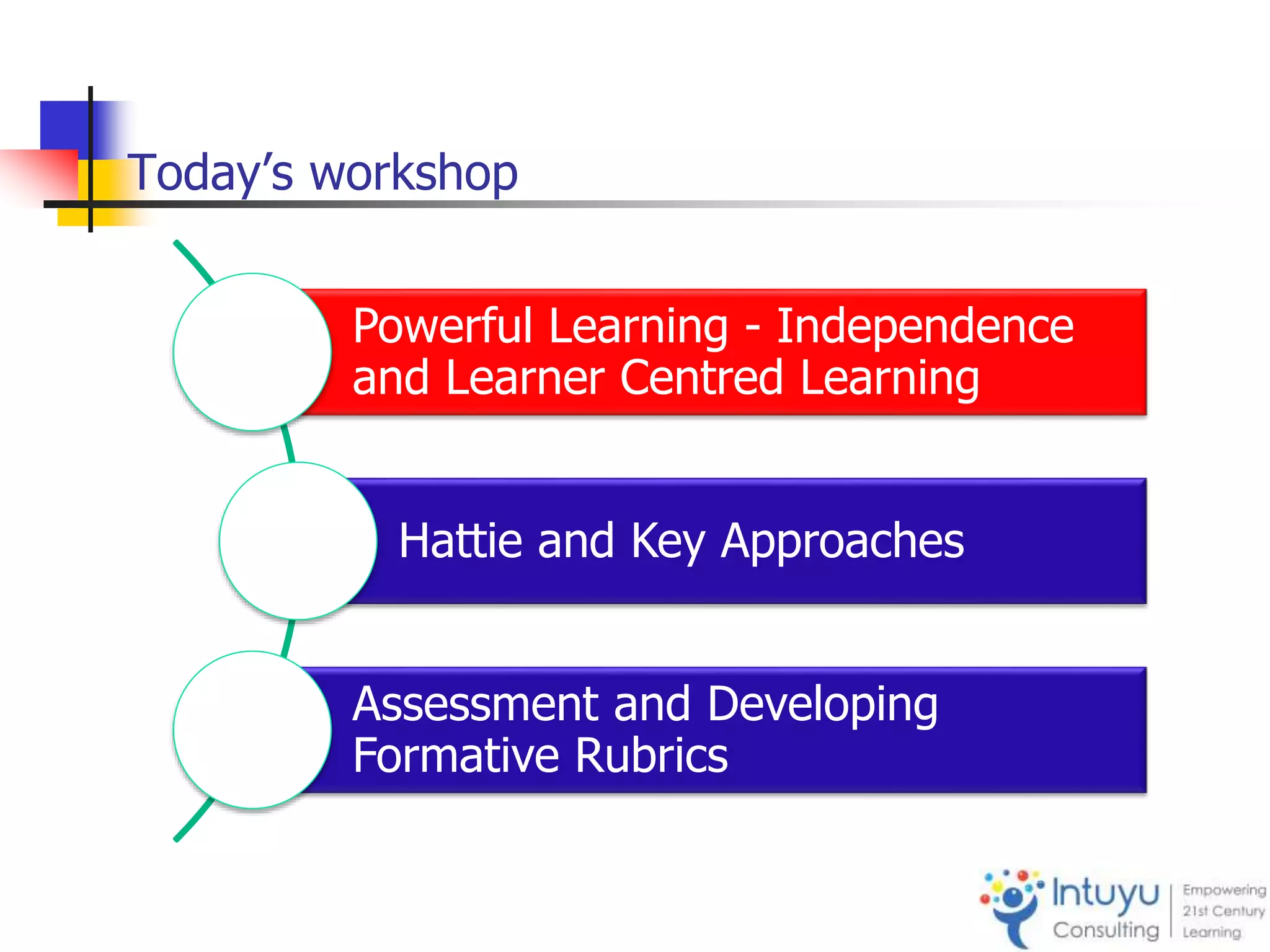The document discusses strategies for developing independent and learner-centered learning approaches in education, focusing on inquiry-based learning and the use of formative rubrics. It emphasizes the importance of teaching students to take responsibility for their own learning and adapting to a rapidly changing future. Key components include fostering creativity, critical thinking, collaboration, and using effective assessment strategies to support student growth and engagement.














































